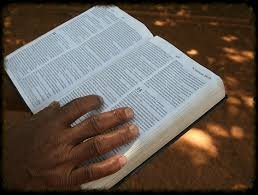Fruitful Living
Applying God’s promises to your life

Applying God’s Promises
His divine power has given us everything we need for life and godliness through our knowledge of Him who called us by His own glory and goodness. Through these He has granted us His very great and precious promises, so that by them you may participate in the divine nature and escape the corruption in the world caused by evil desires. — 2 Peter 1:3-4
For no matter how many promises God has made, they are “Yes” in Christ. And so through him the “Amen” is spoken by us to the glory of God. – 2 Corinthians 1:20
INTRODUCTION
God’s promises are precious, magnificent, and have extreme value. The author of Hebrews admonishes us with these words:
Do not throw away your confidence, which has a great reward. For you have need of endurance, so that when you have done the will of God, you may receive what was promised. — Hebrews 10:35-36
Notice that he says: “When you have done the will of God.” Promises are not given without a plan that involves faith and responsibility, though many times we have to wait for them to be revealed. A biblical promise is a declaration of God’s intention to graciously bestow a gift upon an individual or a group of people. For example, Jesus said,
In My Father’s house are many dwelling places; if it were not so, I would have told you; for I go to prepare a place for you. If I go and prepare a place for you, I will come again and receive you to Myself, that where I am, there you may be also. — John 14:2-3
He knows that at times we may feel tempted to wonder if He is really coming back for us, and so He gives us the promise of His sure return and also of His personal care to reassure us and calm our fears.
GRATITUDE
In 1 Kings, we read about Solomon’s progress especially his effusive blessings of the Lord for His faithfulness. Then he makes this statement:
Blessed be the LORD, who has given rest to His people Israel, according to all that He promised; not one word has failed of all His good promise, which He promised through Moses His servant. — 1 Kings 8:56
God did exactly what He had promised to do, and Solomon honoured the Lord by acknowledging it. He had a grateful heart, and he wanted the people to respond in gratitude also.
How many times have you prayed for something, asking God to meet a need that you have and to speak to you through His Word, and as you read the Bible, He provided assurance that He heard your prayers and will answer?
This is a tremendous gift. But instead of turning to Him with a grateful heart, did you pick up the telephone and call three or four people to tell them the news?
So often we forget to thank the One person who provides the resources we need. I believe God’s heart must hurt over our self-centered actions.
We pray and trust Him and then forget to say, “Lord, thank You for answering my prayers. Thank You for being faithful to the promise You gave me in Your Word. Thank You for meeting my needs perfectly and on time.”
Even those who encountered Jesus during His time here on earth neglected to thank Him:
While [Jesus] was on the way to Jerusalem, He was passing between Samaria and Galilee. As He entered a village, ten leprous men who stood at a distance met Him; and they raised their voices, saying, “Jesus, Master, have mercy on us!”
When He saw them, He said to them, “Go and show yourselves to the priests.” And as they were going, they were cleansed.
Now one of them, when he saw that he had been healed, turned back, glorifying God with a loud voice, and he fell on his face at His feet, giving thanks to Him. And he was a Samaritan. Then Jesus answered and said, “Were there not ten cleansed? But the nine — where are they? — Luke 17:11-17
Nine of these men met the Saviour-Healer (Psalm 103:3), but they never thought to thank God or worship Him for His healing.
PROMISE KEEPING GOD
Hebrews 10:23 reminds us to “hold fast the confession of our hope without wavering, for He who promised is faithful.” God is not going to give you a promise and then say, “You know, maybe I didn’t mean that.” And when He does answer, He wants us to give Him glory and praise because He truly has worked on our behalf.
Fruitful Living
Qur’anic Evidence on Environmental Responsibility (Part 2)
Allah draws our attention to the divine wisdom in creating the earth and subjugating its resources for human benefit:
“It is He Who created for you all that is on the earth.” (Surah Al-Baqarah, 2:29).
“And He has subjected to you, as from Him, all that is in the heavens and on earth. Behold, in that are signs indeed for those who reflect.” (Surah Al-Jathiyah, 45:13).
These verses affirm that the natural world is a divine gift created for human benefit, but not for reckless exploitation.
The trust (Amaanah) placed upon mankind requires careful and sustainable use, respecting the rights of future generations and all other creatures.
Islam and the Sustainable Development Goals (SDGs)
SDG 6 – Clean Water
and Sanitation
Clean water and hygiene are essential for life and spiritual purity. Islam obliges ablution (wudu) and cleanliness as part of daily worship.
The preservation of life (Hifz al- Nafs) is one of the five objectives of Shariah, and access to clean water and sanitation plays a key role in achieving it.
SDG 13 – Climate Action
Islam calls for moderation in consumption and energy use. Wastefulness (Israf) is condemned:
“Indeed, the wasteful are brothers of the devils, and the devil is ever ungrateful to his Lord.”
(Surah Al-Isra, 17:27).
Climate change, driven by overuse of fossil fuels and deforestation, threatens life on earth.
Muslims are taught to protect air quality, plant trees, and reduce carbon emissions—principles that resonate with SDG 13.
SDG 14 – Life below water
Oceans and marine ecosystems are under threat from pollution and overfishing. The Prophet warned against contaminating water:
“Do not urinate in stagnant water which people use.” (Sahih Muslim, Hadith 282).
This Hadith underscores early Islamic environmental regulations aimed at preserving clean water and marine life.
SDG 15 – Life on Land
Islamic teachings are rich in directives for land preservation. Allah warns: “And the earth we have spread out, and placed therein firm mountains and caused to grow therein all kinds of things in due proportion.” (Surah Al-Hijr, 15:19).
Tree felling without cause, soil erosion, and habitat destruction are all contrary to Islamic ethics.
By Imam Alhaji Saeed Abdulai, the Author
Fruitful Living
Why Should I forgive others? (Final)
Forgiveness is thenhigher way
Paul acknowledges the gravity of Onesimus’ offense. Legally and ethically, Onesimus had done wrong. Under Roman law, Philemon had every right to punish him. Yet Paul calls him to choose a higher path—grace.
“For this perhaps is why he was parted from you for a while, that you might have him back forever” (v. 15). Paul reframes the pain of separation as a providential opportunity for lasting unity.
As Christians, we’re invited to see beyond the offense and choose the eternal perspective. Forgiveness isn’t minimising the pain—it’s maximising the grace of God. It’s choosing to imitate Christ, who bore our sin without bitterness.
We are a forgiven people
Years in ministry often reveal a painful pattern: unresolved conflict and an unwillingness to forgive can cripple individuals and entire communities. Families drift. Churches divide. And the gospel is obscured by pride and pain.
Someone said something. Someone got offended. Someone refused to forgive. And so, healing never happened. Every time forgiveness is withheld, the Body of Christ suffers. But when we take steps to reconcile, we bear witness to the redemptive power of the gospel.
Forgiveness is more than an emotional release—it is a spiritual act of obedience. It puts God’s grace on display. It makes visible the invisible love of Christ.
Are you struggling
to forgive ?
Here are five helpful questions to evaluate your heart:
1. Do I feel anger or anxiety when I think about this person?
2. Do I secretly wish for them to suffer as I did?
3. Would I serve or help them if they needed it?
4. Can I sincerely pray for their well-being?
5. Would I be upset if God blessed them?
These questions don’t condemn us—they guide us. They help us identify areas where grace is still needed, where healing is still possible.
CONCLUSION
Forgiveness is one of the most Christlike things we can do. It doesn’t ignore justice—it entrusts it to God. It doesn’t excuse the offense—it acknowledges the cost and chooses love anyway.
Is there a Philemon in your life? Someone you need to forgive? Or are you more like Onesimus—longing to return but unsure if you’ll be received?
Today is a good day to choose grace. For the sake of the gospel, the Church, and your own soul, why not begin the process of forgiveness?
Let’s make this commitment together: By the grace of Christ, I will pursue unity, forgive freely, and live in the freedom that only forgiveness brings.
- By Rev. Dr Joyce Aryee, the author






